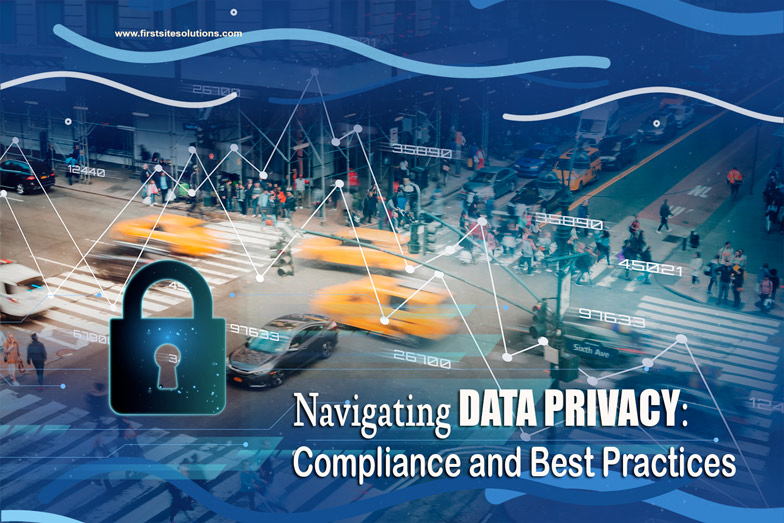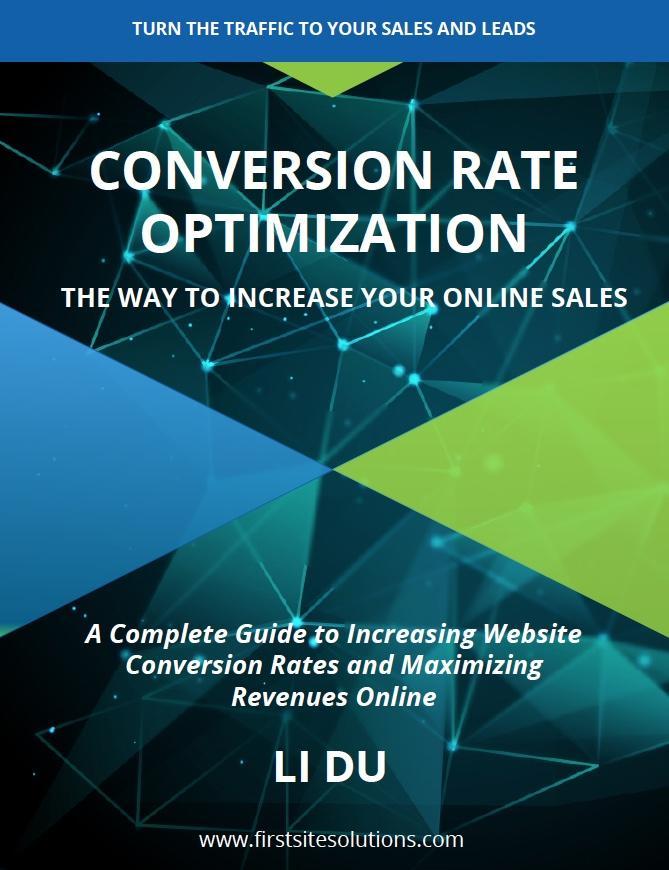
If you want to use the data you’ve collected safely, you must respect the privacy of the people you collected it from! So, let’s review navigating data privacy: compliance and best practices.

Understanding data privacy regulations
When navigating data privacy, understanding data privacy regulations is paramount. These regulations, such as GDPR and CCPA, establish rules to safeguard user information. So, while it's more than fine to work on boosting your conversions, misusing customer data is not! These rules ensure that businesses handle personal data responsibly! So, failing to comply can result in substantial penalties. Therefore, it's crucial to acquaint yourself with the principles and provisions of these regulations. Such knowledge empowers you to navigate data privacy intricacies while providing value to your audience.
Data collection and consent
Data collection and consent are vital aspects of ethical business practices in the digital landscape. So, obtaining explicit consent from users before gathering their information builds transparency and trust. However, the advent of social media has added complexity to this process. And when we account for incorporating social media into strategies and collecting data using it, consent issues become even murkier! Especially since social platforms often involve third-party data sharing, informing users about such practices is essential. So, implementing clear and concise consent mechanisms is crucial, ensuring that users understand how their data will be used!
Securing data: storage and transmission
Thoroughly ensuring data security during both storage and transmission is paramount. Thankfully, data encryption safeguards sensitive information from unauthorized access. Encryption is pivotal in thwarting potential breaches, whether at rest or in transit. Of course, note that it's equally important to secure data backup and recovery files that you use to ensure data availability! Especially since a lot of businesses slack off in this regard!
Furthermore, regularly updating security protocols and patching vulnerabilities enhances protection. And a multi-layered approach, including firewalls and intrusion detection systems, fortifies defenses. Additionally, adhering to compliance standards bolsters data security practices! That, in turn, fosters trust, preserves reputation, and ensures smooth operations even in the face of potential threats.
Employee training and data handling
Training your employees to navigate data privacy properly is paramount. For example, educating your staff about the importance of data security and privacy best practices equips them with the knowledge to safeguard sensitive information. Moreover, regular training sessions ensure employees stay updated on the latest threats and preventive measures. That includes understanding how to recognize phishing attempts, using strong passwords, and being cautious when sharing data. Additionally, instilling a culture of data privacy within your organization fosters a collective sense of responsibility. By promoting a privacy-conscious mindset, employees become a crucial line of defense against potential breaches!

If they use them for work, ensure your employees’ devices are properly secured!
Privacy by design
Privacy by design is a foundational concept in data protection. It involves integrating privacy considerations into every stage of product or software development. Prioritizing privacy from the outset can identify and address potential vulnerabilities early on. So, this approach ensures that user information is safeguarded by default rather than retroactively. Privacy by design also aligns with regulatory requirements like GDPR, where data protection is embedded into systems and processes. Not only does it enhance information security, but it also reduces the risk of breaches and legal repercussions! This proactive stance on privacy benefits users and boosts customer trust and brand reputation. So, implementing privacy by design showcases your commitment to responsible information handling and helps navigate the evolving landscape of data privacy laws.
Data subject rights
Data subject rights are a fundamental aspect of data privacy regulations. These rights empower individuals to control their personal information. They include the right to access, correct, delete, and object to data processing. So, understanding and respecting these rights is essential for compliance. Establishing processes to handle data subject requests promptly and transparently builds trust! However, balancing these rights with legal obligations can be complex. Properly managing these requests ensures you uphold individual privacy while navigating regulatory demands. Of course, complying with data subject rights not only avoids penalties but also demonstrates your commitment to ethical data practices. So, by embracing these rights, businesses foster transparency and respect, fostering positive relationships with their customers and stakeholders.
Vendor management and third-party data sharing
Effective vendor management and cautious third-party data sharing are critical when navigating data privacy. After all, sharing information with third-party vendors introduces potential vulnerabilities, necessitating due diligence. So, select vendors with strong protection practices, and outline clear information handling expectations in contracts. Even consider using useful AI e-commerce tools that can assist with this! Furthermore, properly vetting third parties helps ensure they comply with privacy regulations and safeguard user information. Collaborative partnerships can thrive when privacy is prioritized, building customer trust. So, by managing vendor relationships responsibly, businesses maintain control over customer info and avoid potential breaches or mishandling!

You need to protect your customers’ info at every step!
Data breach preparedness and response
Being prepared for data breaches and having a robust response plan is essential. In a breach, swift action is crucial to mitigate damage and uphold customer trust. That includes identifying the breach's source, containing it, and assessing the extent of the impact. Communication is also key, as notifying affected parties and relevant authorities in compliance with legal requirements fosters transparency. Moreover, regular drills and simulations ensure your team is well-prepared to handle breaches effectively. A clear strategy minimizes chaos during a crisis and demonstrates accountability to stakeholders! So, integrating breach response into your broader information protection framework enhances overall security and minimizes potential consequences.
International data transfers
Navigating international data transfers requires attention to privacy regulations that vary across jurisdictions. So, transferring data across borders involves challenges related to different laws and standards. Mechanisms like Privacy Shield and Standard Contractual Clauses help ensure international compliance when sharing information. However, these mechanisms also require careful implementation and monitoring to guarantee proper protection. So, as global privacy laws evolve, businesses must stay informed about the adequacy of information protection measures in different regions!

You can and should consult professionals about these regulations!
Working to handle privacy concerns
With what you now know about navigating data privacy: compliance and best practices, we know you’ll do well! However, always approach this subject cautiously since problems can cause serious liability issues and loss of customer trust.








